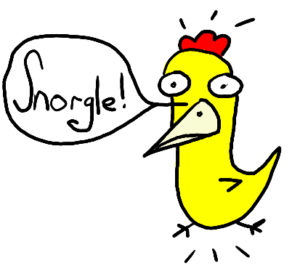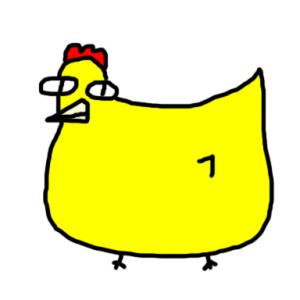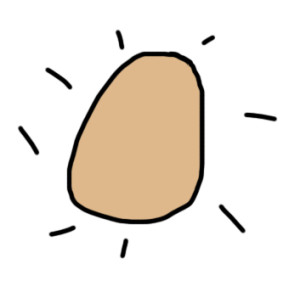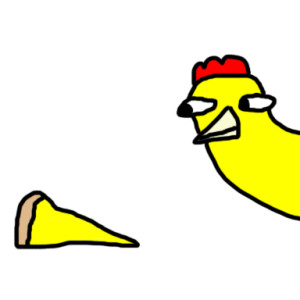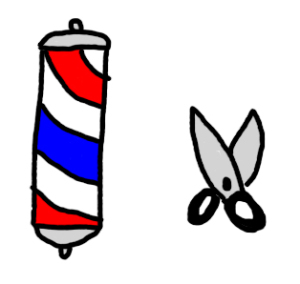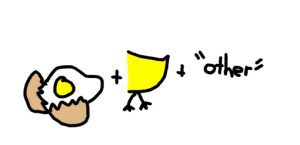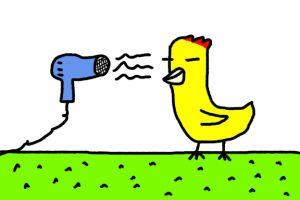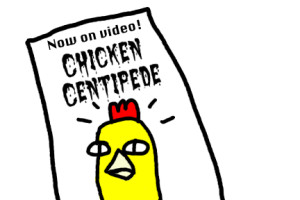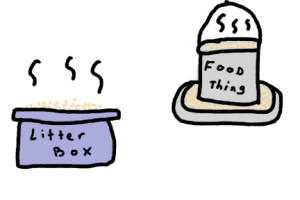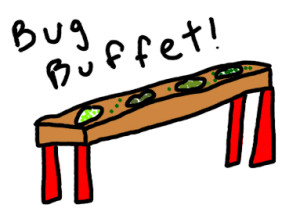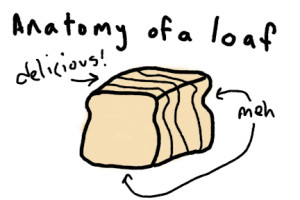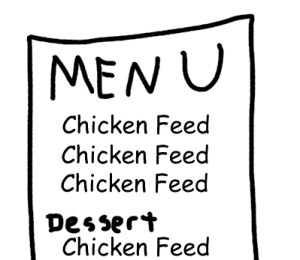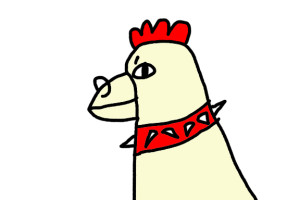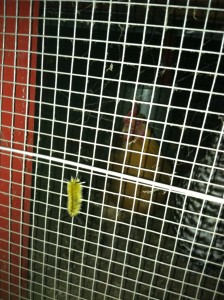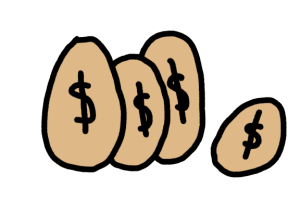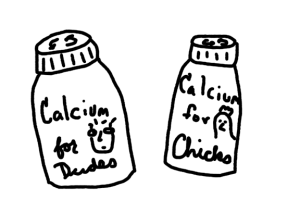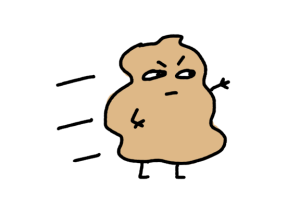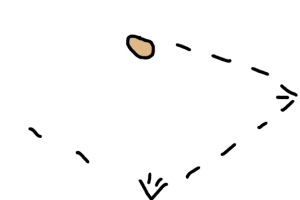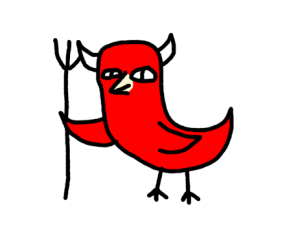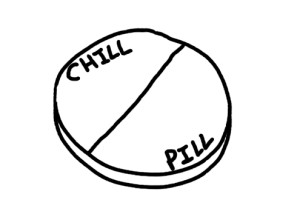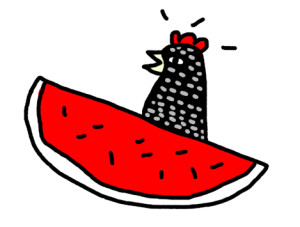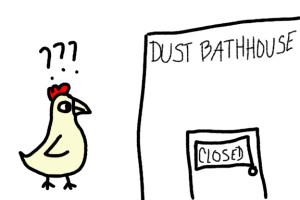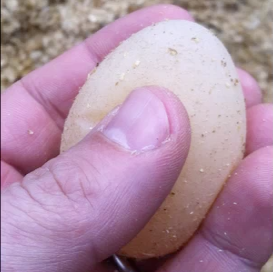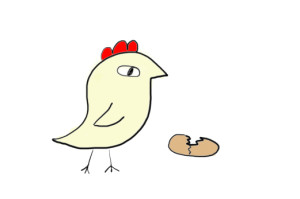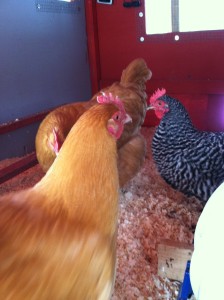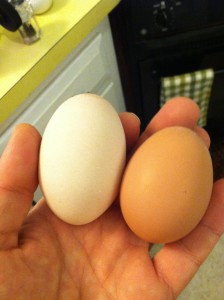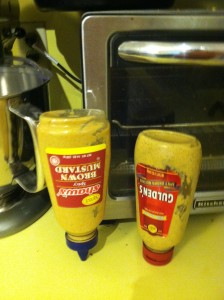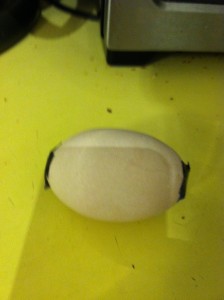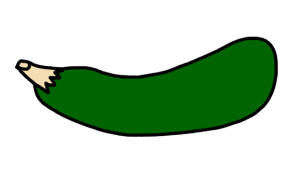Season’s Gleetings!
Friday, April 22nd, 2016We had had a rough couple of weekends, and hadn’t had a chance to go grocery shopping. When you don’t have time to do anything during the week because you commute, you have to cram a lot into Saturday and Sunday, and when you’re exhausted from the cramming, the last thing you want to do is go to the grocery store. We generally have to go shopping on Sundays, which seems to be when all the sports or snowstorms happen, so it’s always a madhouse. That doesn’t help with the motivation to get to the store either. If I could go into work late one day a week so I could shop on a weekday morning, that would be ideal, but I see a tough negotiation ahead if I pursue that. So here we are. We were out of most things, including yogurt and apple cider vinegar, which are staples of my chicken regimen. Both keep some nasty stuff at bay, but I figured it was like taking vitamins. You don’t come down with rickets because you stop taking vitamins for a week, so a week without yogurt in a dish and vinegar in the water couldn’t possibly cause a problem, right?
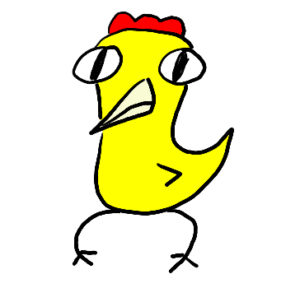
What I’ve been led to believe a chicken with rickets would look like.
Well, the butts of Steve and John told a different story. The story they told was one of gross cloaca disasters. Or one specific disaster we all know as vent gleet. I usually have a run-in with the gleet once a year or so, and here it was just as Spring approached. The plus side, if there is one, is that Steve and John both have such big wattles that it’s very easy to get their beaks open to squirt the mixture of epsom salt and water down their throats that I’ve always treated this with. This is not an easy task by any means, but bigger wattles give me an edge. So I grabbed them one at a time, trimmed all the super nasty butt feathers off, then brought them inside for their “medicine.” (Side note: I ran out of my stock of rubber gloves during this episode, and when I went to buy more, the drugstore was clean out. Like, an entire shelf’s worth of rubber gloves was empty. How does this happen? What was going on in Harvard Square that that many people needed rubber gloves? Luckily(?), there are actually two drugstores of the same chain a block apart, so I was able to get more. I didn’t want to be touching these butts bare-handed.)
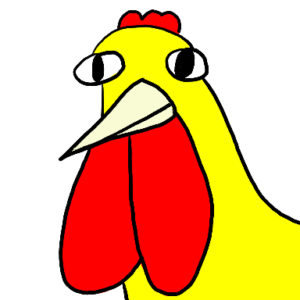
Oh, come on. No one has wattles this big.
I’m not sure if it was Steve or John who was the easier of the two, but one of them was a breeze. Open, epsom, open, epsom, open, epsom, until it’s all gone. I think I even managed to not get any on my pants, which is rare. I usually can be counted on to miss at least one shot, but not this time. Then I brought in the other one. Let’s just say it was John. John wasn’t having any of this. My pants got soaked, then she got away, and it was just a big struggle, even with the wattle advantage. Then I did the thing they warn you not to do. I squeezed the dropper too hard and I got some down the wrong neckhole, so liquid went into her lungs. I could hear it rattle with every breath. I had no idea what to do. I held her upside down in the hope that the liquid would run out. It didn’t. I looked online, and I found a lot of people saying not to do this, but no one saying what to do if it happened. I figured all I could do was ride it out. A ton didn’t get in there, so she could breathe, but enough was in there that she rasped. I put her in the coop, then she sneezed, and that actually seemed to make the rasping better. I had to hope it would sort itself out.
I posted on a messageboard for help. No one really had any input on how to handle this, but one person asked why I was still doing the epsom trick. I said it was because that was a thread that had been stickied on that website. The other poster pointed out that vent gleet is fungal, so it’s much easier to just spray their butts with athlete’s foot spray for two weeks. You’re supposed to do it twice a day, and I don’t see them sitting still for this in the mornings, but nights are easy. So I’ve been doing that in lieu of the second dose of epsom salt. John’s breathing was fine the next day, and the gleet seems to be on the outs. I do have one lingering concern, though. Last year what I thought was a vent gleet outbreak was actually mites. So is it really the gleet, or am I fighting the wrong foe? Time will tell.

Still an enemy, but the right one this time?
(CREDITS: Theme music: Chicken In The Barnyard by Fireproof Babies, Music Bed: Some Smoke by National Promenade Band, record scratch sound effect by: simkiott)
